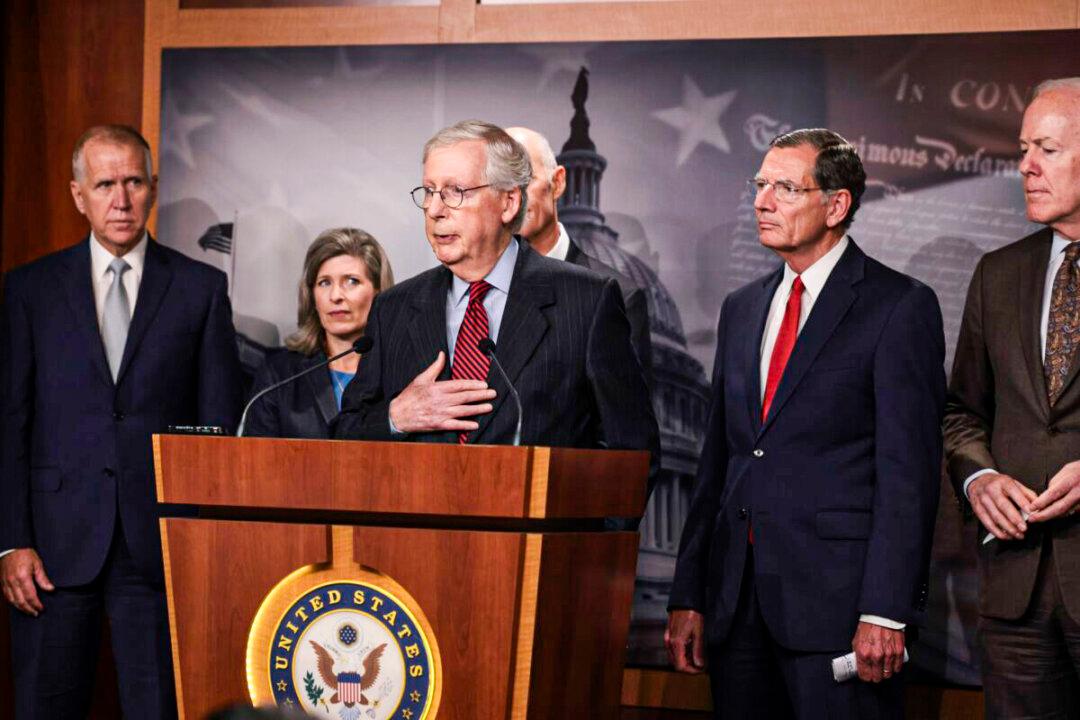Senate Minority Leader Mitch McConnell (R-Ky.) and other Republicans are advising President Joe Biden not to “outsource” his Supreme Court pick to “the radical left,” warning that they will fight hard against the confirmation of anyone they consider too left-wing.
Liberals, fearful of losing another seat on the 6–3 conservative-leaning court, had for months pressured 83-year-old Justice Stephen Breyer to step down while a Democrat held the White House. After a flurry of rumors that his retirement was imminent, Breyer officially announced on Thursday that he will step down at the end of the court’s term this summer.





